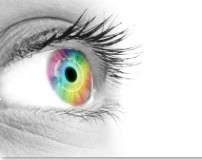Author: DynamicBrain Inc.
Publication: Monthly Newsletter
Published Date: September 23, 2024
Many people think vision depends on the eyes, and hearing on the ears; but that is only partly true. Our sensory organs—like eyes and ears—collect information from the environment and deliver it to the brain to be processed. We then make sense of that information (we see it and hear it) only after the processing is complete. When we’re young, this process is quick and accurate, so we see and hear well, we think and react fast, and we enjoy remembering information clearly at a later time. Unfortunately starting in our 20s, these functionalities begin to decline. Several strong, published studies have shown that using BrainHQ significantly improves this process and allows us to continue to stay connected—driving longer and living independently as we age (Vision and Hearing & Driving).
Please don’t forget your brain training today and, if you still don’t have full access, join now.

Kind regards, Frieda Fanni
President
DynamicBrain Inc.
DynamicBrain Inc. is the Canadian partner of Posit Science Corporation since 2010 providing brain fitness program BrainHQ in English and French.
|
 |
 Cellular communities
Cellular communities
A technical marvel of a study has analyzed more than 1.6 million brain cells from older adults to capture the cellular changes that occur in the early stages of Alzheimer’s disease. Relying on advanced molecular technologies, machine learning, and a large sample of brains, researchers have found a second community of cells that may drive an older brain down a different path that avoids Alzheimer’s disease.
Hear how machine learning and large-scale data are contributing to our understanding of Alzheimer’s.
 Your brain’s unique movie
Your brain’s unique movie
If two people are watching the same screen in a cinema, are they seeing the same movie? Or is the movie playing out differently in their minds? Researchers in Germany have discovered that people experience movies differently and that these differences are linked to each person’s unique eye movements.
Find out how our perception is as unique as our personalities.
 Twice the size
Twice the size
A brain network involved in reward processing and filtering external stimuli is nearly twice the size in individuals with depression compared to individuals without, according to new research in depression. The research used a relatively new approach called precision functional mapping to give a more detailed look of the brain.
Learn what this finding means for our understanding of depression.